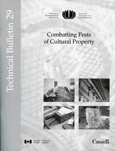In order to control a pest problem, it must be identified properly. Entomologists specialize in insect identification and control. If you do not know an entomologist in your area, look at the
Directory of Entomology Specialists
(entomologists, addresses and contact numbers, organized by states)
http://pestdata.ncsu.edu/ipmexperts/pmcenters/PMExpertsearch.cfm?usdaregion=National%20Site
Or have your pest identified at the
Virtual Plant and Pest Diagnostic Laboratory
http://www.ppdl.purdue.edu/ppdl/default.html
A broken or smashed insect may be impossible to identify. Your entomologist should be able to tell you how to prepare a sample. If not, here are some articles that provide guidelines:
How to Collect and Ship Samples
http://www.ppdl.purdue.edu/ppdl/SampleSubmission.html
How to package and mail Invertebrate (insect) specimens
http://scarab.msu.montana.edu/ipm/Submital.html
Pest Identification: Insects
(includes information on how to package insects for the entomologist)
http://ipm.ncsu.edu/urban/cropsci/c07insec/c07insec.html
Be sure you know the pests that are commonly a problem to a collection.
Museum Pests
http://www.colostate.edu/Depts/IPM/natparks/museum.html
Included on the left are links to a few pages that provide information about carpet beetles, silverfish and firebrats, and clothes moths.
Books and products we recommend:
 CCI Tech Bulletin #13 Controlling Vertebrate Pests in Museums by Thomas J.K. Strang and John E. Dawson
CCI Tech Bulletin #13 Controlling Vertebrate Pests in Museums by Thomas J.K. Strang and John E. Dawson
Examines the detrimental affect that rodents have on museum collections. Vertebrate animals can soil or destroy artifacts. Prompt identification of the pest and the use of suitable methods to control it are essential. In most cases, non-chemical methods can be used to control vertebrate pests in museums; chemical methods are also discussed.
Controlling Vertebrate Pests in Museums | $12.00 |
 CCI Tech Bulletin # 15 Solving Museum Insect Problems: Chemical Control by John E. Dawson and revised by Thomas J.K. Strang
CCI Tech Bulletin # 15 Solving Museum Insect Problems: Chemical Control by John E. Dawson and revised by Thomas J.K. Strang
Intended to help museum staff understand commercial pest control operations. It describes chemical methods of controlling insects, and includes information on regulations, modes of action, and application methods necessary for the safe use of insecticides. A detailed guide helps in decision-making about the appropriate chemical method of control.
| Solving Museum Insect Problems: Chemical Control | $26.00 |
 CCI Tech Bulletin #29 Combatting Pests of Cultural Property by Tom Strang and Rika Kigawa
CCI Tech Bulletin #29 Combatting Pests of Cultural Property by Tom Strang and Rika Kigawa
Pests can be very destructive to both aesthetic elements and the structural integrity of collections, historic buildings, and objects. Protection against pests requires attention to the collection’s environment, containment, discovery of pests, response to pests, and remediation actions. Reducing loss of value over time is the goal of preventive conservation strategies. Integrated pest management (IPM) practices are part of this process. Having a safe work environment and minimizing adverse effects to objects from chemical exposure is a background concern. Effectiveness of any control procedure or treatment can be measured by reducing the extent and repeated incidence of the problem. Basic pests of collections, and a structured approach to pest reduction activities, are presented. A survey method with remediation activities appropriate to pest infestation findings is given to help start an IPM program for a wide range of collections from outdoor installations to state-of-the art preservation facilities.
| Combatting Pests of Cultural Property | $35.00 |
Links to related information on other sites:
Directory of Entomology Departments and Institutes (DEDI)
http://www.sciref.org/links/EntDept/UW.htm
Cigarette Beetle
http://www.ext.vt.edu/departments/entomology/ factsheets/cigarett.html
Cluster flies Waking Up in homes
http://ipm.montana.edu/YardGarden/docs/clusterflies-insect.htm
Mice, Family housing, offices, barracks, and other administrative buildings – Integrated Pest Management Outline No. 23
http://chppm-www.apgea.army.mil/ento/ PLAN/MICEHOUS.HTM
Mice, Food storage warehouses – Integrated Pest Management No. 22
http://chppm-www.apgea.army.mil/ento/ PLAN/MICEFOOD.HTM
Powderpost Beetle
http://www.ext.vt.edu/departments/entomology/ factsheets/powderpo.html
Rats
http://www.colostate.edu/Depts/IPM/ natparks/rats.html
Links to full text articles for a variety of pests are found at:
Insects and Pests
(A list of articles about insect and pest identification)
http://ohioline.osu.edu/lines/pests.html
Virginia Cooperative Extension: List of Beetles with Links
http://www.ext.vt.edu/cgi-bin/WebObjects/Docs.woa/wa/getcat?cat=ir-ln-ip-be
Virginia Cooperative Extension: List of General Household Insects with Links
http://www.ext.vt.edu/cgi-bin/WebObjects/Docs.woa/wa/getcat?cat=ir-ln-ip
MSU Integrated Pest Management Pest Recommendation Network
http://scarab.msu.montana.edu/PRN1/index.html
Home & Landscape Pest Notes
(links to information on specific pests)
http://axp.ipm.ucdavis.edu/PMG/selectnewpest.home.html
Iowa Insect Information Notes
(Listing of insects and links to information about them)
http://www.ipm.iastate.edu/ipm/iiin/
Insect and Insect-Related Software
Developed by or in Cooperation with the University of Florida
http://pests.ifas.ufl.edu/software/
Pests In and Around the Home: CD-ROM
http://pests.ifas.ufl.edu/software/det_pests.htm
General Information Paper on Cockroaches
http://chppm-www.apgea.army.mil/ento/facts/roach.htm
Stored Products Insects – Integrated Pest Management Outline No. 7
http://chppm-www.apgea.army.mil/ento/ PLAN/STORED.HTM
PestWeb: Links to Associations and Governments
http://www.pestweb.com/associations/
Iowa State University Entomology Index to Internet Resources
http://www.ent.iastate.edu/list/
Manageing Health Hazards Associated with Bird and Bat Excrement
http://chppm-www.apgea.army.mil/ento/tg142.htm
National Pesticide Media Database
http://pesticidepics.ext.vt.edu/
